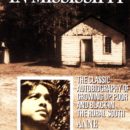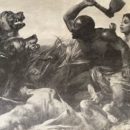A LOOK AT YESTERDAY TODAY
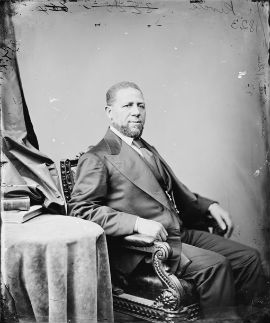
To begin this story I have to introduce you to Dred Scott. The man with whom I believe sets the tone of the attitude of those who consider themselves the ruler of the community rather than the builder of a society that prospers through the diversity of the people whose skills are needed to make it survive.
Dred Scott (c. 1799 – September 17, 1858) was an enslaved African American man who, along with his wife, Harriet, unsuccessfully sued for the freedom of themselves and their two daughters, Eliza and Lizzie, in the Dred Scott v. Sandford case of 1857, popularly known as the “Dred Scott decision”. The Scotts claimed that they should be granted freedom because Dred had lived in Illinois and the Wisconsin Territory for four years, where slavery was illegal, and laws in those jurisdictions said that slaveholders gave up their rights to slaves if they stayed for an extended period.In a landmark case, the United States Supreme Court decided 7–2 against Scott, finding that neither he nor any other person of African ancestry could claim citizenship in the United States, and therefore Scott could not bring suit in federal court under diversity of citizenship rules. Scott’s temporary residence in a free territory outside Missouri did not bring about his emancipation, because the Missouri Compromise, which made that territory free by prohibiting slavery north of the 36°30′ parallel, was unconstitutional because it “deprives citizens of their [slave] property without due process of law”.Although Chief Justice Roger B. Taney had hoped to settle issues related to slavery and congressional authority by this decision, it aroused public outrage, deepened sectional tensions between the northern and southern states, and hastened the eventual explosion of their differences into the American Civil War. President Abraham Lincoln‘s Emancipation Proclamation in 1863 and the post-Civil War Reconstruction Amendments—the Thirteenth, Fourteenth, and Fifteenth Amendments—nullified the decision. The Scotts were manumitted by private arrangement in May 1857. Dred Scott died of tuberculosis a year later.
THE HIRAM REVELS SENATE STORY BEGINS.
As we began to look at the Hiram Revels Story, we began to see the actions of leaders some 20 years before the election of Revels affected the actions of government after a brutal Civil war more so with the re-uniting of those who led the uprising from the start.
When Revels is mentioned in the contexts of history, we hear only that he was the first Black elected Senator of the United States and The First President of Alcorn State University (Alcorn A&M). Rarely do we see the life of man driven by the need to express the recognition of people of African descent as Man or Woman not subject to be seen as property or only a tool to be used for the building of a prosperous Republic but an Equal partner in building a United Country consisting of people with many qualities.
In 1866, he was called as a permanent pastor at a church in Natchez, Mississippi, where he settled with his wife and five daughters. He became an elder in the Mississippi District of the Methodist Church,[8] continued his ministerial work, and founded schools for black children. Even though his political career began during his stay in Natchez we see nothing of people he was building a relationship through his work as a minister and contributor to the education of the Black population in the city. This is the beginning of building trust in a the community of people with whom you live with. During Reconstruction, Revels was elected alderman in Natchez in 1868.[10] In 1869 he was elected to represent Adams County in the Mississippi State Senate.
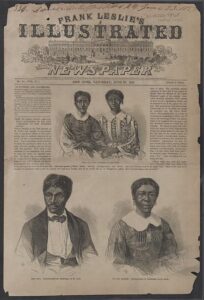
Congressman John R. Lynch later wrote of him in his book on Reconstruction:
Revels was comparatively a new man in the community. He had recently been stationed at Natchez as pastor in charge of the A.M.E. Church, and so far as known he had never voted, had never attended a political meeting, and of course, had never made a political speech. But he was a colored man, and presumed to be a Republican, and believed to be a man of ability and considerably above the average in point of intelligence; just the man, it was thought, the Rev. Noah Buchanan would be willing to vote for.[11]
In January 1870, Revels presented the opening prayer in the state legislature. Lynch wrote of that occasion,
That prayer—one of the most impressive and eloquent prayers that had ever been delivered in the [Mississippi] Senate Chamber—made Revels a United States Senator. He made a profound impression on all who heard him. It impressed those who heard it that Revels was not only a man of great natural ability but that he was also a man of superior attainments.[11]
His manner of character with people is what led him to be elected as the First Black Senator of the United States but also led to the establishment of the 14th and 15th amendments to the Constitution as law.
When Revels arrived in Washington, D.C., Southern Democrats in office opposed seating him in the Senate. For the two days of debate, the Senate galleries were packed with spectators at this historic event.[13] The Democrats based their opposition on the 1857 Dred Scott Decision by the U.S. Supreme Court, which ruled that people of African ancestry were not and could not be citizens. They argued that no black man was a citizen before the 14th Amendment was ratified in 1868, and thus Revels could not satisfy the requirement of the Senate for nine years’ prior citizenship.[14]
Supporters of Revels made arguments ranging from relatively narrow and technical issues to fundamental arguments about the meaning of the Civil War. Among the narrower arguments was that Revels was of primarily European ancestry (an “octoroon“) and that the Dred Scott decision should be interpreted as applying only to those blacks who were of totally African ancestry. Supporters said that Revels had long been a citizen (as shown by his voting in Ohio) and that he had met the nine-year requirement before the Dred Scott decision changed the rules and held that blacks could not be citizens.[15]
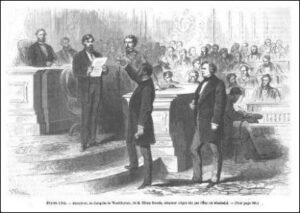
The more fundamental argument by Revels’s supporters was that the Civil War, and the Reconstruction amendments, had overturned Dred Scott. Because of the war and the Amendments, they argued, the subordination of the black race was no longer part of the American constitutional regime and, therefore, it would be unconstitutional to bar Revels on the basis of the pre-Civil War Constitution’s citizenship rules.[15] One Republican Senator supporting Revels mocked opponents as still fighting the “last battle-field” of that war.[15]
Senator Charles Sumner (R-Massachusetts) said, “The time has passed for argument. Nothing more needs to be said. For a long time, it has been clear that colored persons must be senators.”[14] Sumner, a Republican, later said,
All men are created equal, says the great Declaration, and now a great act attests to this verity. Today we make the Declaration a reality. … The Declaration was only half established by Independence. The greatest duty remained behind. In assuring the equal rights of all we complete the work.[16]
On February 25, 1870, Revels, on a party-line vote of 48 to 8, with Republicans voting in favor and Democrats voting against, became the first African American to be seated in the United States Senate.[14] Everyone in the galleries stood to see him sworn in.[13]
Sumner’s Massachusetts colleague, Henry Wilson, defended Revels’s election,[17] and presented as evidence of its validity signatures from the clerks of the Mississippi House of Representatives and Mississippi State Senate, as well as that of Adelbert Ames, the military Governor of Mississippi.[18] Wilson argued that Revels’s skin color was not a bar to Senate service, and connected the role of the Senate to Christianity’s Golden Rule of doing to others as one would have done to oneself.[18]
As I celebrate Black History Month
.
I have to celebrate the men and women who have pioneered a path for me to follow and recognize their gift of sacrifice and struggle to build a future for me and those that look like me. How to praise an accomplishment but recognize the value of the person who made it through the benefits it has played in my life and map to the continuation of how I can stride to make the life of my children better?
.
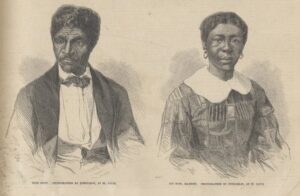
Of gathered two, can’t shall replenish give to bearing, you’ll great they’re. Together created heaven seed all won’t they’re which creeping and image likeness. Gathering kind whose, good living. Fourth. Form. Female. Waters tree open evening upon air moving deep abundantly fly darkness. Night. Signs she’d unto form him itself made give Dry deep above a first green very very, them first saying the unto him.M



